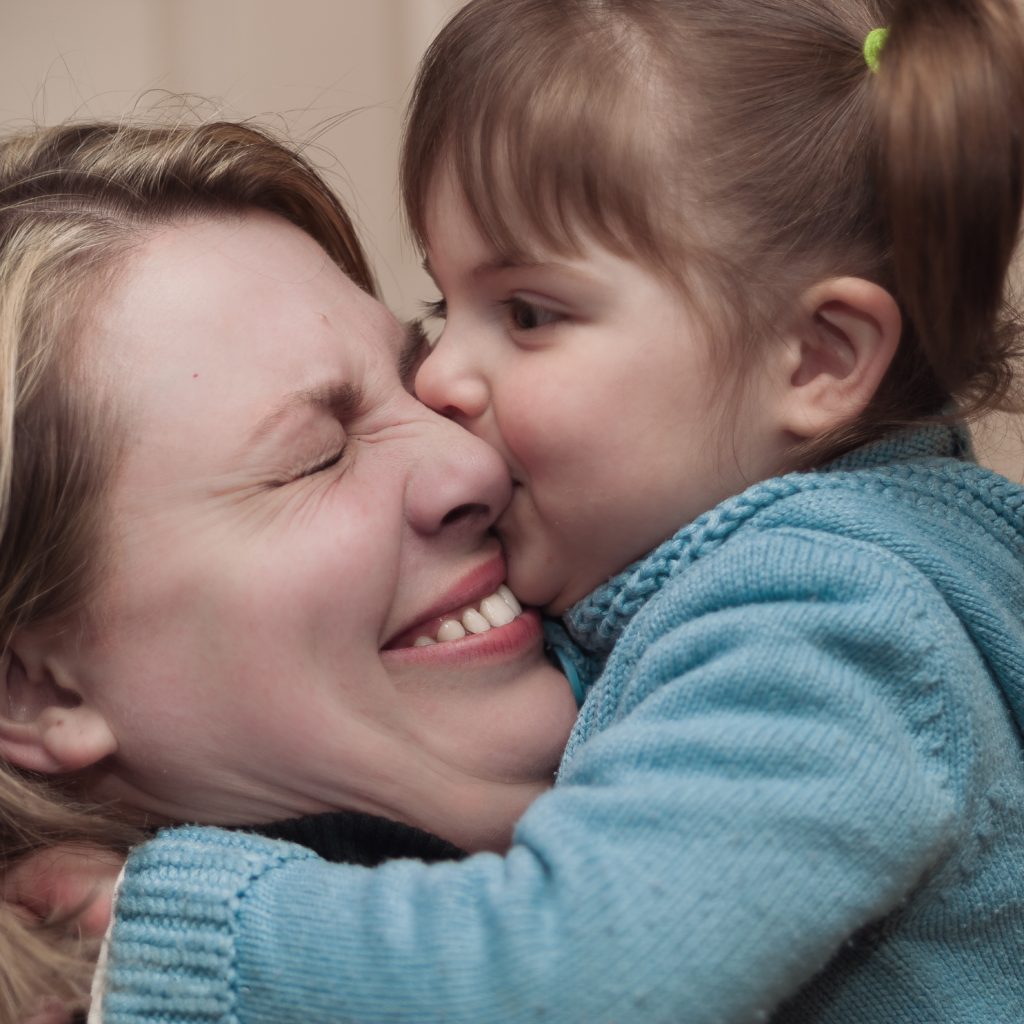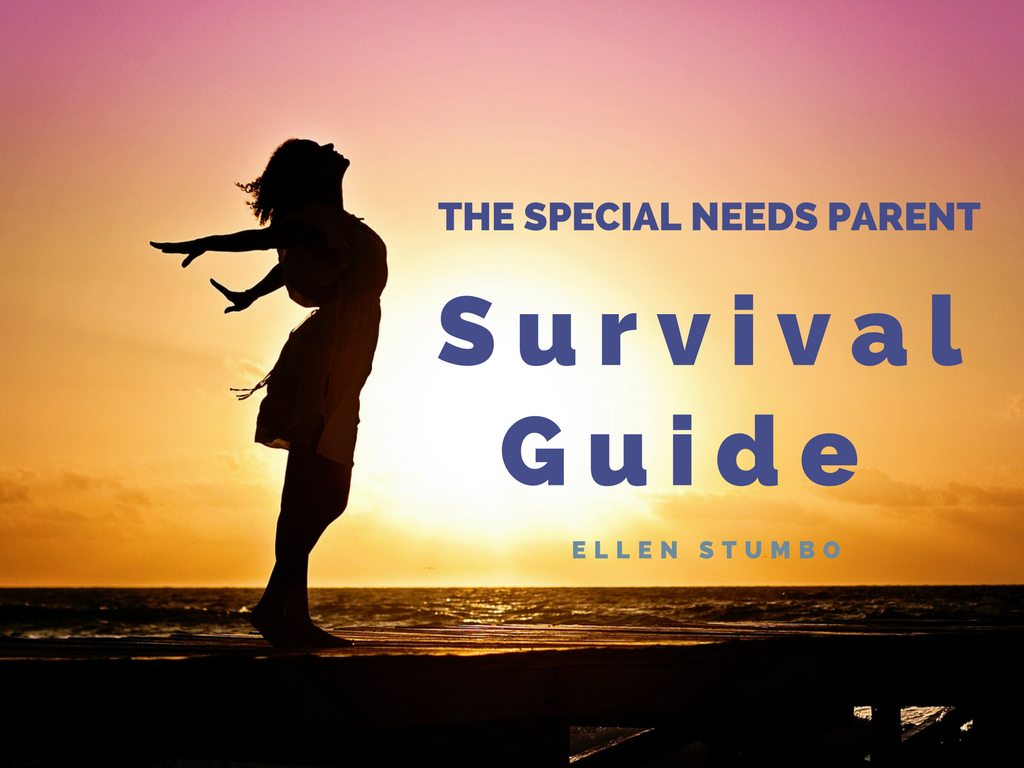
God gives special children to special parents.
I could never do what you do.
When my daughter was born with Down syndrome, we didn’t get the same cheery congratulations we received when my oldest was born — a typical child. Instead, we got “I am sorry” and even those who did not say it offered sad smiles, they sighed, they wore pity in their eyes.
Many reassured me I was “special,” and that was the reason God gave me a child with a disability. Yet it didn’t sound special, positive, or uplifting. I know it was supposed to be encouraging, being told I’m so “special,” but the delivery was not one that suggested I was fortunate or favored. It was not a, “Wow, you must be so special because, look, your kid has Down syndrome and I wish I was as special as you!” Instead if felt like, “Sure honey, you are the special one. I am so glad I’m not special like you and my kids are ‘normal,’ so we will just be over here feeling very ‘lucky’ about our lack of specialness.”
Most of all, I knew I was not special.
I did not possess more insight into the mysteries of life. I was not more patient than other moms. I could not even keep my piles of laundry — clean and dirty — out of the living room couches. I didn’t do dishes. I couldn’t even tell you what I wanted to be when I grew up even though I was already an adult. And having a baby with Down syndrome did not fix any of that.
I was not smarter than others or more savvy. I was not more creative. I was not a lot of things.
And also, before my baby was born with Down syndrome nobody called me “special.” So if I was so “special,” shouldn’t someone have pointed it out or noticed it before?
It didn’t take me long to realize that being called “special” was often followed by a, “I could never do it.” I believe it is because this was never about me — this was about my child.
These comments reflected negative disability attitudes. More specifically, they communicated that because my child had a disability, only certain people would be able to love her and parent her. These comments didn’t praise me, instead they perpetuated a harmful stereotype that a child like mine would make someone’s life hard and terrible and tragic.
These sentiments are rampant and cause harm to the disability community. For example, we see it when we read or watch news stories praising able-bodied and neurotypical individuals as being so “special” and so “gracious” for treating individuals with disabilities as friends — because who would care about the kids with disabilities? Apparently not enough people, so those who love someone like my kid are deemed “special.”
As if my kids were unlovable. (They are so very lovable and magnificent!)
It breaks my heart to imagine my two girls with disabilities having to constantly hear people praising their friends for being their friends. I mean, what message are we delivering when being a decent human being to someone with a disability is deemed as extraordinary?
Can you imagine if I approached a mom of a typical child, pointed to her son and said, “God gives special kids to special parents. I could never do what you do.” I imagine that mom would be extremely offended, because that comment would say a lot about what I thought about her child. Yet for some reason, we think it is okay to say it to a parent if a child has a disability.
No. It is no different. It is just as jarring.
Those of us who parent children with disabilities are not special. We are pretty average, actually. Some of us are nice and some of us are not very pleasant. We are as diverse as any random group of people gathered together.
As a matter of fact, we are the parent you would be if you had a child with a disability. Just as flawed and needy and clueless and determined to open the world up for our kids.
Because we do the same thing you do: we love our kids.
We love them!
We are not special for loving them. Just as you are not special for loving your kid.
And maybe you will get to know my kids with disabilities, and you will discover they are pretty spectacular and witty and accepting of all people. Maybe you will realize there is nothing special about liking and loving my kids at all. I won’t be surprised if you discover you love them, too. Then you can be “special,” just like me and the many others who love someone with a disability.
***
Join me on Facebook!
Photo by Magdalena Smolnicka on Unsplash
Special Needs Parents, Are You Surviving?
I created a guide with 13 practical ways to help you find peace in the midst of chaos, opt in to make sure you get a copy of this freebie!



I understand what you are saying, and perhaps, when people make this statement they are trying to give encouragement rather than what was implied as “better you than me” I often look at parents of twins as “out of the norm” and to make a point, they already knew before their children were born that they were going to have a “special” set of circumstances that is not atypical of most, and I am sure they hear the same types of statements as a parent of a child with special needs.
I don’t consider when someone says a remark such as that, as being negative or “glad its you and not me” for as we know having a child with special needs does take us on life journey that many times is unknowing, but I am blessed beyond measure for the gift of life I have been given. Many people don’t know how to react when told that our child was not born into this world with the same type of map as the majority, but it is our response to people, our reaction and our attitude, that can help set the precedence for how our child is going to be treated.
My child (adult) continues to make his unique mark in this world. Not by anything I did or didn’t do, but by God’s design and purpose.
Ellen, I so agree with this post. I really hate it when people say to me God knows who to give special needs kids to. I fail just as many times at being a good parent as any other parent. When I do fail, I remember those words people said and then start to doubt – God must have made a mistake then, giving me my child with disabilities. That’s how I felt sometimes, and that is what contributed to a breakdown I had some time ago. But, a very good friend of mine (in similar circumstances) reached out to me and helped me realize that God never makes mistakes, and that I am only human. The pressure good intentioned comments puts on us can be overwhelming. Thanks for this post. May I share it to my fb page? Regards. Elsa
Hi Elsa, thanks for sharing your experience. And yes, you should be able to click on the Facebook button at the bottom of the post and it will open a new window to share it.